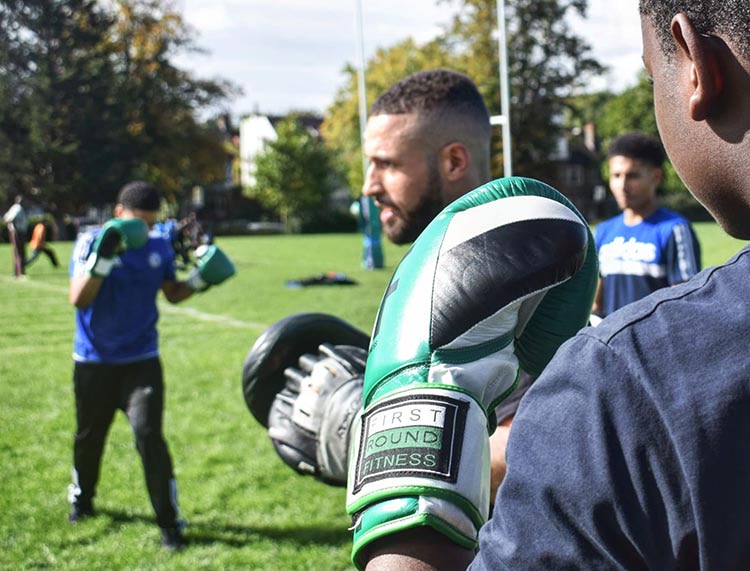‘Anger Management’ should be taught in schools – Will this really combat serious crime?

A recently published study analyzing how violence affects young people has shone a spotlight on the issues facing why crime amongst teenage boys has been steadily increasing in recent years.
The report, called ‘Community Views on violence affecting young people in Greater Manchester’, was commissioned by Greater Manchester’s police chiefs and council and forms part of their Serious Violence Action Plan.
As part of the government’s Serious Violence Strategy, the study sets out early intervention and prevention methods to address national increases in gun and knife crime.
Meanwhile, a recent freedom of information request showed that:
Weapon possession in schools had doubled in the last four years.
Does the report go far enough in identifying the root causes of this rise in crime in schools?
Proper education is certainly key to effecting change, but are key decision makers in the education system aware of what they can be doing in practice to help prevent serious acts of violence?
One of the report’s findings highlights that a culture of ‘toxic masculinity’ and peer pressure is largely to blame for teenage boys getting involved in crime.
It found that boys are being told that retaliation is a form of strength associated with masculinity, and any emotions other than aggression are deemed to be feminine.
RecommendationsThe people talked to during the course of the research have provided a wealth of material and insight into violent crime across Greater Manchester, this has been used to develop recommendations across 10 themes drawn directly from these insights:
|
While the findings of the report make some headway in illustrating where the issues lie within our schooling system, the solutions they suggest are unlikely to make any real dent in bettering our education system and tackling violence.
For example, one recommendation was that boys aged 12 – 13 be taught ‘anger management’ lessons in school, addressing violence and identity.
Is this actually going to reduce knife crime rates?
Teaching teenage boys how to manage their aggression in a rigid and restrictive classroom environment is unlikely to produce fruitful results. A large part of the problem originates with a rigid schooling system that favours creating an environment that youngsters find particularly difficult to learn in. Teenagers typically need to get involved in order to appreciate the benefits of learning; it is much easier to engage them if they are experiencing firsthand what they are being taught.
This is where we find that schools can learn a lot from alternative educational providers who employ creative means to engage young people. Vigorous exercise is an ideal way of getting children to participate in an activity that encourages them to push through their physical and psychological barriers.
Breaking down self-imposed barriers help young people build confidence and self-belief, which is key to ensuring they go on to securing bright futures. Whether it’s carrying on with further education or applying for apprenticeships, a sense of self-worth and self-belief are key ingredients that make up part of the mix.
Expelled students are four times more likely to end up in prison
What is all too commonly happening instead is that children are getting expelled from school because of an inability to engage with and benefit from their learning environment. Statistics from the Department for Education highlight this, revealing that 10 – 18-year-olds who were convicted of knife-possession offences were generally lower achievers, with much lower GCSE scores, and are also more likely to be excluded from school than their peers.
Many of these lower-achieving students who are most commonly those to face expulsion suffer with special education needs (SEN).
14% of our education system in the UK comprises children with SEN, and yet they make almost 45% of all fixed term and permanent expulsion rates.
This renders a 2016 study conducted by the University of Edinburgh all the more concerning, which revealed that students who are expelled during key developmental stages of learning – in other words in their teenage years – were four times more likely to wind up in prison.
Using exercise as a means to build resilience
Teenagers with learning difficulties find classroom environments particularly difficult to learn in, so ‘anger management’ lessons are unlikely to have much of an effect. In contrast, providing a controlled environment in which teenagers can engage in physical exercise allows them not only to drain excess, unwanted energy, but also provides them with firsthand experience of achieving a sense of self-worth and belonging through focus and determination.
Given that many young people involved in criminal activity struggle with learning difficulties, schools should be considering their options; providing creative alternative working environments that engage young people and prevent (as well as correct) anti-social behaviour is a step in the right direction.
It provides boys with a positive attitude to learning, which is key to helping them pass higher education as they learn determination and drive, thus bettering their career options. The need to find a sense of belonging in gangs and exercise their ‘masculinity’ through violence then begins to fall away.
Providing young people with the tools to generate enough self-belief to understand that hard work pays off will go a long way in increasing their chances of making it through higher education and seeking apprenticeship opportunities.
Whether the issue is learning difficulties, behavioural troubles or simply a lack of engagement, using exercise as a means to build resilience, develop control and focus the mind in young adults helps encourage enough self-belief for them to go on and achieve greatness.
Justyn Page, Founder, First Round Fitness, an organisation devoted to fighting for our communities











Responses